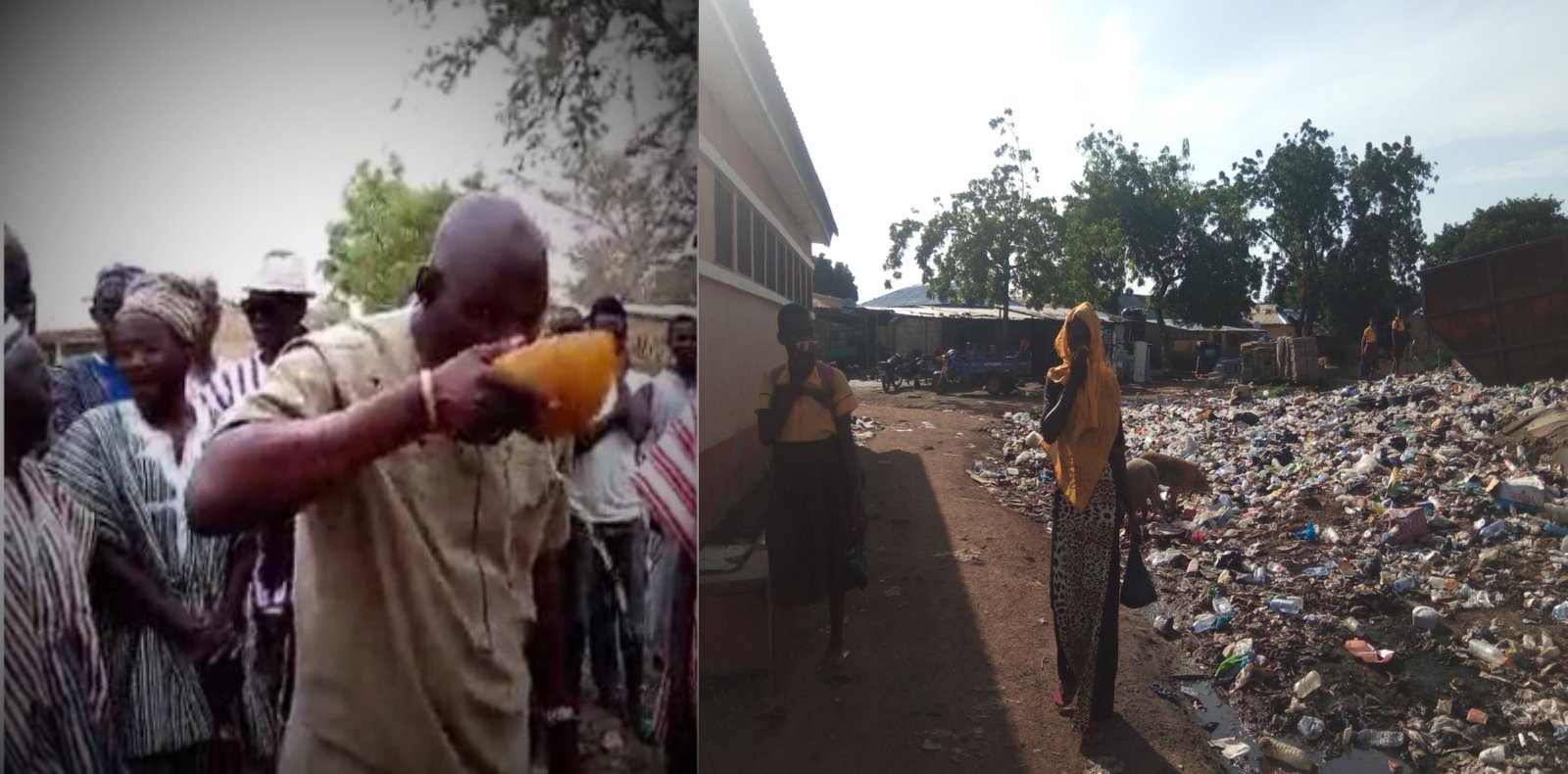In the observation of many, the Municipal Chief Executive (MCE) for Bolgatanga, Joseph Amiyuure, is not concerned about the garbage that is killing the people he has been entrusted to protect.
And there are those who believe that, even if he constituted a committee today to do something about the chronic waste management crisis in the regional capital, it would go nowhere because some committees, when assigned to do feasibility studies, rather do visibility studies.
To the displeasure of some observers, the MCE, who doubles as the Chairman of the Municipal Security Council (MUSEC), has more time to ‘play with sand’ on Facebook than he has to declare a war on waste.
At a time a swelling filth has remained a dominant root of OPD attendance and admissions at health facilities across Bolgatanga are mostly linked to waste, his Facebook wall, a free channel through which he can also launch and sustain a very strong campaign against the plague, is rather active with comments many often consider too tasteless and too trivial to emanate from the keypad of the CEO of a whole cosmopolitan capital.

At a time the municipality is stinking everywhere, with people holding handkerchiefs, the hems of their scarfs and the collars of their shirts to their noses to shield themselves from powerful stench and killer sanitation-related diseases as they walk through the busy town, the MCE is busy drinking water anywhere boreholes are being commissioned in the heart of a region where more have died from cholera than from conflict.
Of course, I am going to have more enemies for talking about this. But as a journalist who should love to be hated, I prefer a cut in the number of the friends I have to an increase in the number of critics who would be the first to ask why journalists are not doing their job.
WASH, an acronym for Water, Sanitation and Hygiene, is a programme being run across the local government areas of Ghana (Bolgatanga included) jointly by four United Nations agencies—UN-Habitat, UNICEF, UNDP and WHO— and some stakeholders in the country.

It aims to improve public water and sanitation infrastructure in flood-prone communities in pursuit of the Sustainable Development Goal 6 with focus on five key areas.
One: supplying safe drinking water for drinking, cooking, personal hygiene and household cleaning. Two: providing and maintaining gender-friendly latrines or toilets. Three: active disease surveillance and increased vigilance on water quality and sanitation practices during disease outbreaks.
Four: solid waste management and site drainage activities, to reduce standing water and garbage where disease-carrying mosquitoes can breed. And five: hygiene promotion and community mobilisation to promote safe hygiene and health-seeking behaviours and to empower displaced people to take an active role in WASH operations.

Obviously, the MCE, despite taking part just once in an assembly-led cleanup since he took over office in 2017, is more glued to the “Water” in the “WASH” than to the “Sanitation” therein. In fact, some say the assembly itself is more interested in revenue collection than it is in waste collection. Nobody can boast of “Hygiene” if he drinks “Water” where good “Sanitation” is missing. WASH will head nowhere when an MCE drinks whilst a municipality stinks.
Article by Edward Adeti | EIB correspondent, Upper East region




